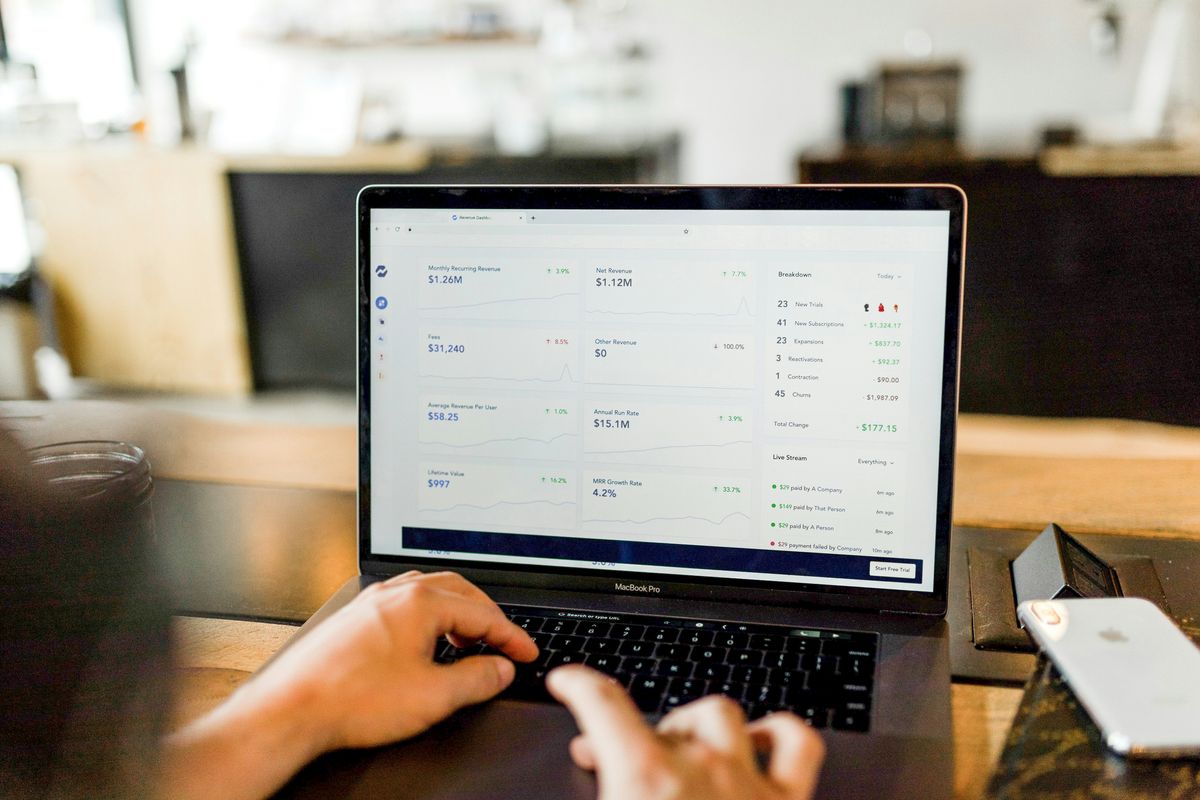The Bank of America Lease Buyout Explained
By Budget Savvy Hub | Updated January 23, 2024
Lease buyouts are a common practice in the financial industry, allowing individuals and businesses to purchase the assets they have been leasing. The Bank of America Lease Buyout is a specific process offered by the bank, providing customers with the opportunity to buy out their leased assets. Understanding the key aspects of this process is essential for making informed financial decisions. In this article, we will explore the Bank of America Lease Buyout in detail, covering eligibility criteria, financial considerations, legal implications, and more.
Table of Contents
Key Takeaways
- Eligibility criteria play a crucial role in the Bank of America Lease Buyout process.
- Calculating the buyout amount accurately is essential for making informed financial decisions.
- Comparing lease buyout with traditional financing can help in evaluating the most cost-effective option.
- Legal and tax implications of lease buyouts should be thoroughly understood to avoid any potential issues.
- Expert answers to frequently asked questions can provide valuable insights into the Bank of America Lease Buyout process.
Understanding Lease Buyouts
Definition and Basics of Lease Buyouts
A lease buyout refers to the process of purchasing a leased asset before the end of the lease term. This can be a strategic move for businesses looking to secure long-term use of an essential asset. Buyout options may vary based on the lease agreement, providing flexibility for lessees.
When considering a lease buyout, it’s crucial to evaluate the buyout amount, which is influenced by factors such as the asset’s residual value, depreciation, and any outstanding fees. Here’s a simple breakdown of the buyout amount calculation:
| Factor | Calculation |
|---|---|
| Residual Value | $20,000 |
| Depreciation | $5,000 |
| Outstanding Fees | $2,000 |
| Total Buyout Amount | $27,000 |
For businesses seeking stability and control over their assets, a lease buyout can offer a pathway to ownership and long-term cost management. It’s important to carefully weigh the financial implications and consider the potential benefits of ownership, such as tax advantages and asset appreciation. Consulting with financial advisors and legal experts can provide valuable insights into the decision-making process.
Types of Lease Buyouts
Lease buyouts can be categorized into two main types: closed-end and open-end. Closed-end lease buyouts have a predetermined buyout amount at the end of the lease term, providing a clear understanding of the financial commitment. On the other hand, open-end lease buyouts allow for flexibility in determining the buyout amount based on the vehicle’s market value at the end of the lease. This can lead to potential cost savings or additional expenses, depending on the vehicle’s depreciation. Consider the following comparison table to understand the key differences between closed-end and open-end lease buyouts:
| Aspect | Closed-End Lease Buyout | Open-End Lease Buyout |
|---|---|---|
| Buyout Amount | Fixed | Variable |
| End-of-Lease Fees | Limited | Potential Additional |
| Flexibility | Limited | High |
When considering a lease buyout, it’s important to weigh the advantages and disadvantages of each type to make an informed decision. Keep in mind that the choice between closed-end and open-end lease buyouts can significantly impact your financial obligations and future options. Always consult with a financial advisor or leasing expert for personalized guidance and advice.
The Bank of America Lease Buyout Process
Eligibility Criteria
To qualify for the Bank of America lease buyout, applicants must meet specific eligibility criteria. This includes having a good credit score, a history of on-time lease payments, and a clear understanding of the terms and conditions of the original lease agreement. Additionally, applicants should have a stable income and employment status to demonstrate their ability to repay the buyout amount.
It’s important to note that meeting the eligibility criteria does not guarantee approval for the lease buyout. Each application is evaluated individually, and additional factors may be considered by Bank of America.
For a detailed breakdown of the eligibility criteria, refer to the following table:
| Eligibility Criteria | Description |
|---|---|
| Credit Score | Must meet the minimum credit score requirement set by Bank of America |
| Payment History | Should have a record of on-time lease payments throughout the lease term |
| Income Verification | Applicants need to provide proof of stable income and employment |
| Lease Agreement Understanding | Clear understanding of the terms and conditions of the original lease agreement |
Steps to Apply for a Lease Buyout
When applying for a lease buyout, it’s crucial to carefully review the terms and conditions outlined in the original lease agreement. Eligibility criteria must be met to qualify for the buyout, and it’s important to consider the financial implications of the decision. Here’s a simple table to illustrate the required documentation:
| Documentation Required |
|---|
| Lease Agreement |
| Identification |
| Financial Statements |
Additionally, the steps to apply for a lease buyout can be summarized in a numbered list:
- Contact the Lessor to Express Interest
- Review and Complete Application Forms
- Submit Required Documentation
- Await Approval and Terms
For a successful application, it’s advisable to seek professional advice and guidance throughout the process. As a tip, ensure that all documentation is accurate and up to date to expedite the approval process.
Required Documentation
When applying for a Bank of America lease buyout, it’s crucial to ensure that all required documentation is in order. This includes but is not limited to:
- Proof of income
- Identification documents
- Lease agreement
- Vehicle information
It’s important to double-check the accuracy and completeness of the documentation to avoid delays in the application process. Accuracy in the provided information is key to a smooth and efficient buyout process. Attention to detail can make a significant difference in expediting the approval process.
Tip: Organize all the required documents in a folder to streamline the application process and avoid any potential delays.
Financial Considerations
Calculating the Buyout Amount
When calculating the buyout amount, it’s important to consider the residual value of the leased asset. The residual value is the estimated value of the asset at the end of the lease term. This value is used as the basis for calculating the buyout amount. Additionally, negotiating the buyout price with the lessor can also impact the final buyout amount.
To calculate the buyout amount, you can use the following formula:
| Calculation | Formula |
|---|---|
| Buyout Amount | Residual Value + (Interest + Fees) |
It’s essential to carefully review the terms of the lease agreement to understand how the buyout amount is determined. Keep in mind that the buyout amount may also be influenced by the current market value of the asset and any additional fees or charges.
Tip: Before finalizing the buyout amount, consider consulting with a financial advisor to ensure that the decision aligns with your long-term financial goals.
Interest Rates and Fees
When considering a lease buyout, it’s crucial to understand the impact of interest rates and fees on the overall cost. Interest rates can significantly affect the total amount you’ll pay, so it’s important to compare and evaluate offers from different lenders. Additionally, be mindful of any fees associated with the buyout, such as administrative fees or early termination fees. Here’s a simple breakdown of the costs to consider:
| Cost Type | Amount ($) |
|---|---|
| Interest Rate | 3.5% |
| Administrative Fee | $200 |
| Early Termination Fee | $500 |
It’s essential to carefully review the terms and conditions to fully understand the financial implications of the buyout. Remember, even small differences in interest rates and fees can have a significant impact on the overall cost.
Comparing Lease Buyout vs. Traditional Financing
When comparing Lease Buyout and Traditional Financing, it’s important to consider the following factors:
- Interest Rates
- Total Cost of Ownership
- Flexibility of Terms
Keep in mind that the decision should align with your long-term financial goals and overall business strategy. As a tip, carefully analyze the potential savings and benefits of each option before making a decision.
Advantages and Disadvantages
Pros of a Lease Buyout
Lease buyouts offer flexibility for businesses looking to acquire their leased assets. This option allows businesses to negotiate favorable terms and conditions for the buyout amount.
- Businesses can benefit from lower monthly payments and reduced interest rates.
- It’s important to carefully review the terms and conditions of the lease buyout to ensure it aligns with the business’s financial goals.
Tip: Consider consulting with a financial advisor to assess the long-term implications of a lease buyout and make an informed decision.
Cons of a Lease Buyout
Lease buyouts may result in higher overall costs compared to returning the vehicle at the end of the lease. It’s important to carefully consider the resale value of the vehicle and the potential for unexpected maintenance costs. Additionally, the decision to buyout a lease may limit the flexibility to switch to a different vehicle or leasing option. Consider these factors before committing to a lease buyout.
- Higher overall costs
- Resale value and maintenance costs
- Limited flexibility for switching vehicles
Case Studies
Success Stories
Success stories are a testament to the benefits of lease buyouts. They showcase how individuals or businesses have successfully taken advantage of this opportunity to secure their financial future. These stories often highlight the significant savings and flexibility gained through a lease buyout. Here are a few key examples:
- Company A: Saved over $50,000 by opting for a lease buyout instead of continuing with the original lease agreement.
- Individual B: Used the lease buyout option to upgrade to a newer model without incurring excessive costs.
- Family C: Found financial relief by negotiating a favorable lease buyout amount and avoiding potential penalties for exceeding the lease mileage limit.
These success stories serve as inspiration for others considering a lease buyout, demonstrating the potential for substantial savings and improved financial flexibility. Remember, each situation is unique, so it’s essential to evaluate your specific circumstances before making a decision.
Challenges Faced During the Process
Lease buyouts can present several challenges, including negotiating the buyout amount, understanding the legal implications, and navigating the tax considerations. It’s important to carefully review the lease agreement and seek professional advice to ensure a smooth transition. Additionally, considering the financial implications and comparing the buyout with traditional financing options can help in making an informed decision.
When facing challenges during the lease buyout process, it’s crucial to stay organized and keep track of all documentation and communication. This can help in resolving any issues efficiently and expediting the buyout process. Seeking guidance from financial advisors and legal experts can provide valuable insights and ensure compliance with all legal and financial requirements.
For a structured comparison of lease buyout and traditional financing, consider the following table:
| Aspect | Lease Buyout | Traditional Financing |
|---|---|---|
| Ownership of the asset | Transferred to lessee | Immediate ownership |
| Tax implications | Potential tax benefits | Tax implications |
| Flexibility | Limited by lease terms | More flexibility |
Remember, it’s essential to carefully evaluate the financial, legal, and practical aspects of a lease buyout to make an informed decision. Seeking professional advice and conducting thorough research can help in navigating the challenges and maximizing the benefits of a lease buyout.
Legal and Tax Implications
Understanding the Legal Framework
Lease buyouts involve complex legal considerations that require careful attention. It’s crucial to seek legal counsel to ensure compliance with all applicable laws and regulations. Additionally, understanding the lease agreement terms is essential for navigating the legal framework effectively.
When evaluating the legal implications, consider the following factors:
| Factor | Consideration |
|---|---|
| State-specific regulations | Research and understand state laws governing leases |
| Contractual obligations | Review lease terms and obligations carefully |
| Liability and indemnity | Assess potential liabilities and indemnification |
Remember, legal expertise is invaluable in navigating the legal complexities of lease buyouts.
Tip: Always consult with legal professionals to ensure compliance and mitigate legal risks effectively.
Tax Considerations for Lease Buyouts
When considering tax implications for lease buyouts, it’s important to understand the impact on your financial situation. Depreciation recapture is a key factor to consider, as it may result in additional tax liabilities. Additionally, consulting with a tax professional can provide valuable insights into the specific tax implications of your lease buyout.
It’s also important to note that the tax treatment of lease buyouts may vary based on individual circumstances. For a clear understanding of the tax implications, it’s advisable to review the specific details with a qualified tax advisor.
For structured quantitative data, a table can be used to compare the tax implications of lease buyouts with traditional financing options. This table should include key tax considerations and their impact on the overall financial picture.
Lastly, it’s essential to keep in mind that tax laws and regulations are subject to change. Staying informed about any updates or amendments to tax laws can help in making informed decisions regarding lease buyouts.
Frequently Asked Questions
Common Queries About Lease Buyouts
Lease buyouts can be a complex process, and it’s common to have questions. Here are some common queries and expert answers to help you understand the process better.
- What is the typical buyout amount for a lease?
- How long does the lease buyout process take?
- Are there any tax implications when opting for a lease buyout?
Expert Tip: When considering a lease buyout, it’s important to carefully evaluate the financial implications and consult with a financial advisor if needed.
Expert Answers
When seeking expert advice on lease buyouts, it’s crucial to consider the terms and conditions of the lease agreement. Understanding the fine print can make a significant difference in the decision-making process. Additionally, it’s important to compare the buyout amount with the current market value of the asset to ensure a financially sound decision.
Here are a few key considerations to keep in mind:
- Evaluate the residual value of the leased asset.
- Consider the impact of interest rates and fees on the overall cost.
- Seek professional guidance to navigate the legal and tax implications effectively.
Tip: Always consult with financial and legal experts to make informed decisions about lease buyouts.
Conclusion
Final Thoughts on Lease Buyouts
Final Thoughts on Lease Buyouts
Lease buyouts can be a beneficial option for individuals looking to take ownership of their leased assets. It provides an opportunity to secure a valuable asset and gain long-term financial stability. When considering a lease buyout, it’s important to carefully calculate the buyout amount and compare it with traditional financing options. This ensures that you make an informed decision that aligns with your financial goals.
- Consider the residual value of the leased asset
- Evaluate the interest rates and fees associated with the buyout
- Compare the advantages and disadvantages of lease buyouts vs. traditional financing
Tip: Before proceeding with a lease buyout, consult with financial advisors to understand the long-term implications and make a well-informed decision.
Future Outlook for Bank of America Lease Buyouts
The future outlook for Bank of America lease buyouts is promising, with a growing trend towards flexible and customizable buyout options. As the market evolves, customers can expect to see more competitive interest rates and fee structures, making lease buyouts an attractive financing solution.
Additionally, Bank of America is committed to enhancing its customer support and online resources for lease buyout applicants, simplifying the process and providing greater transparency. This dedication to customer satisfaction is expected to drive increased adoption of lease buyouts among Bank of America customers.
For a quick comparison of lease buyout vs. traditional financing, consider the following table:
| Aspect | Lease Buyout | Traditional Financing |
|---|---|---|
| Ownership at the end | Yes | Yes |
| Monthly Payments | Fixed | Variable |
| Purchase Option | Predetermined | Flexible |
| Residual Value Risk | Transferred | Retained |
This comparison highlights the key differences between the two financing options, helping customers make informed decisions based on their individual needs and preferences.
Conclusion
In conclusion, the Bank of America lease buyout is a complex financial transaction that requires careful consideration and understanding. It provides an opportunity for lessees to take ownership of the leased property, empowering them with greater control and flexibility. However, it’s important to weigh the risks and benefits before proceeding with a lease buyout. Understanding the terms, conditions, and financial implications is crucial for making an informed decision. Overall, the Bank of America lease buyout offers a valuable option for lessees seeking to secure long-term assets and financial stability.
Frequently Asked Questions
What is a lease buyout?
A lease buyout is the process of purchasing a leased vehicle before the end of the lease term, usually at a predetermined price.
How do I know if I’m eligible for a lease buyout with Bank of America?
You can check your eligibility for a lease buyout with Bank of America by contacting their customer service or visiting a Bank of America branch.
What documentation is required for a lease buyout with Bank of America?
The documentation required for a lease buyout with Bank of America may include your lease agreement, proof of insurance, and financial information.
What are the advantages of a lease buyout?
The advantages of a lease buyout include the ability to purchase a vehicle you’re familiar with, avoiding lease-end charges, and potential savings on the purchase price.
Are there any tax implications associated with a lease buyout?
Yes, there may be tax implications associated with a lease buyout, and it’s recommended to consult with a tax professional for personalized advice.
How does a lease buyout with Bank of America compare to traditional financing?
A lease buyout with Bank of America may offer competitive interest rates and flexible terms compared to traditional financing options for purchasing a vehicle.
You may also like
Maximizing Rewards: An In-Depth Look at Chase Freedom’s Spending Categories
Chase Freedom's cash back program offers a variety of rewards for cardholders, but understanding…
Comparing Chase Freedom Flex and Sapphire Preferred: Which Card Comes Out on Top?
When it comes to choosing a credit card, the Chase Freedom Flex and Chase Sapphire Preferred are…
Maximizing Your Approval Chances: The Credit Score Needed for Chase Freedom Flex
Understanding the credit score requirements for the Chase Freedom Flex card is essential for…



